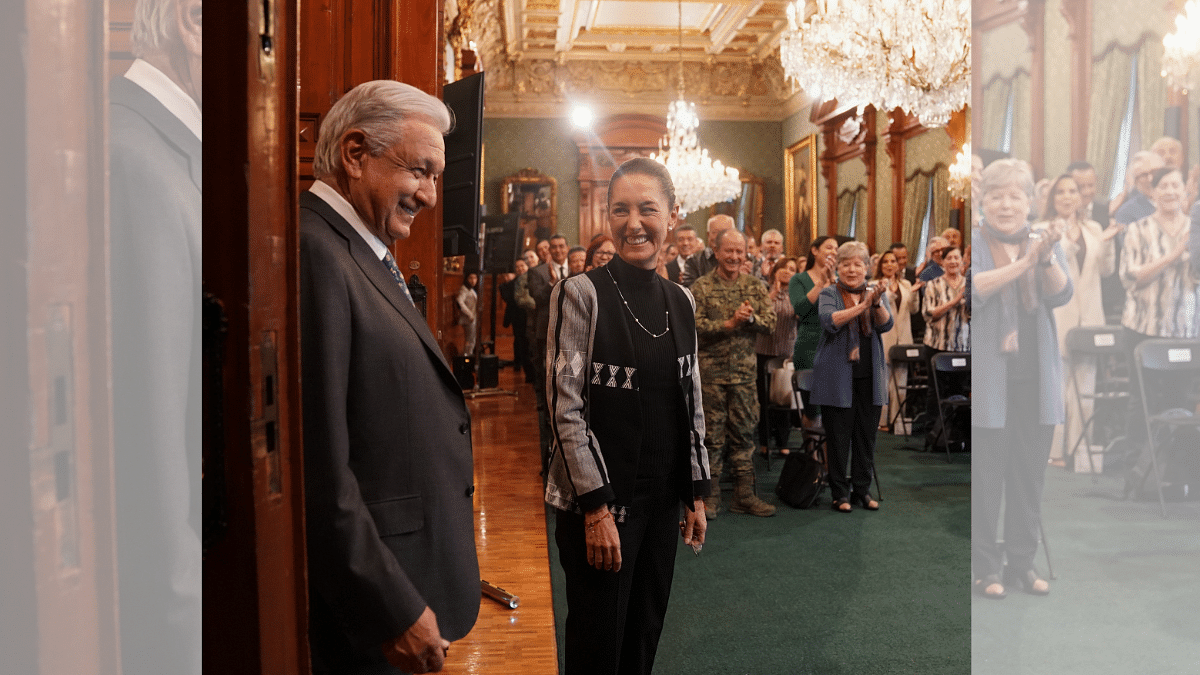New Delhi: Mexico is set to become the first country in the world to elect all its judges by popular vote after outgoing president Andres Manuel Lopez Obrador signed Sunday an official decree for the controversial judicial reform law.
The law which aims to elect over 6,000 judges and magistrates, including those presiding over the Supreme Court, has been met with opposition within and outside the country. The changes are being hailed as “historic” and “people’s will” by those in the government.
Currently, judges and magistrates are appointed by an administrative body known as the Federal Judicial Council.
The law, passed by the Senate, is one of the final goals of President Lopez Obrador. Known to be at loggerheads with the judiciary, the 70-year-old Mexico President has often criticised it for corruption and accused judges of being part of the mafia.
The judicial overhaul brought by him in the last few weeks of his six-year term is a “means to clean up” corruption in courts, he said.
“It’s very important to end corruption and impunity. We will make great progress when it is the people of Mexico who freely elect the judges, the magistrates, the justices,” Lopez told the press. “Judges, with honourable exceptions … are at the service of a predatory minority that has dedicated itself to plundering the country.”
While conviction in graft cases is obscure, a government survey suggests that 66 percent of Mexicans perceive judges to be corrupt. The judiciary is also considered a space for nepotism and “influence peddling” with about 37 percent of judicial officials already having at least one family member in the judiciary. And, the new law aims to curtail this issue as well. The new law also reduces the number of SC judges from 11 to 9, reducing the term to 12 years.
Another reason for the overhaul is the presence of drug cartels, which have on several instances pressured judges and threatened to kill them. The new law also states that organised crime can be handled by “anonymous judges”.
…
Supreme Court chief judge Justice Norma Lucia Pina said that elected judges could be more vulnerable to pressure from criminals, in a country where powerful drug cartels regularly use bribery and intimidation to influence officials, Le Monde and AFP reported.
Tyler Mattiace, an Americas researcher at Human Rights Watch, claimed “their (president and president elect’s) focus on how judges are chosen is mistaken. Their proposal will do nothing to address the true bottleneck in Mexico’s justice system: prosecutors’ willingness and capacity to investigate.”
Outside the country, the US and Canada have raised concerns, calling Lopez Obrador’s new law a “risk to democracy” causing diplomatic tensions to arise. US Ambassador to Mexico Ken Salazar’s comments stating that the new law could “threaten” Mexico’s commercial relationship with the US, one of its top trading partners, was termed “disrespectful” to the country’s sovereignty by the president.
Canada’s Ambassador Graeme C. Clark, too, voiced similar concerns claiming that investors are “concerned” over anticipation of increased uncertainty. “My investors are concerned. They want stability. They want a judicial system that works if there are problems,” he said.


